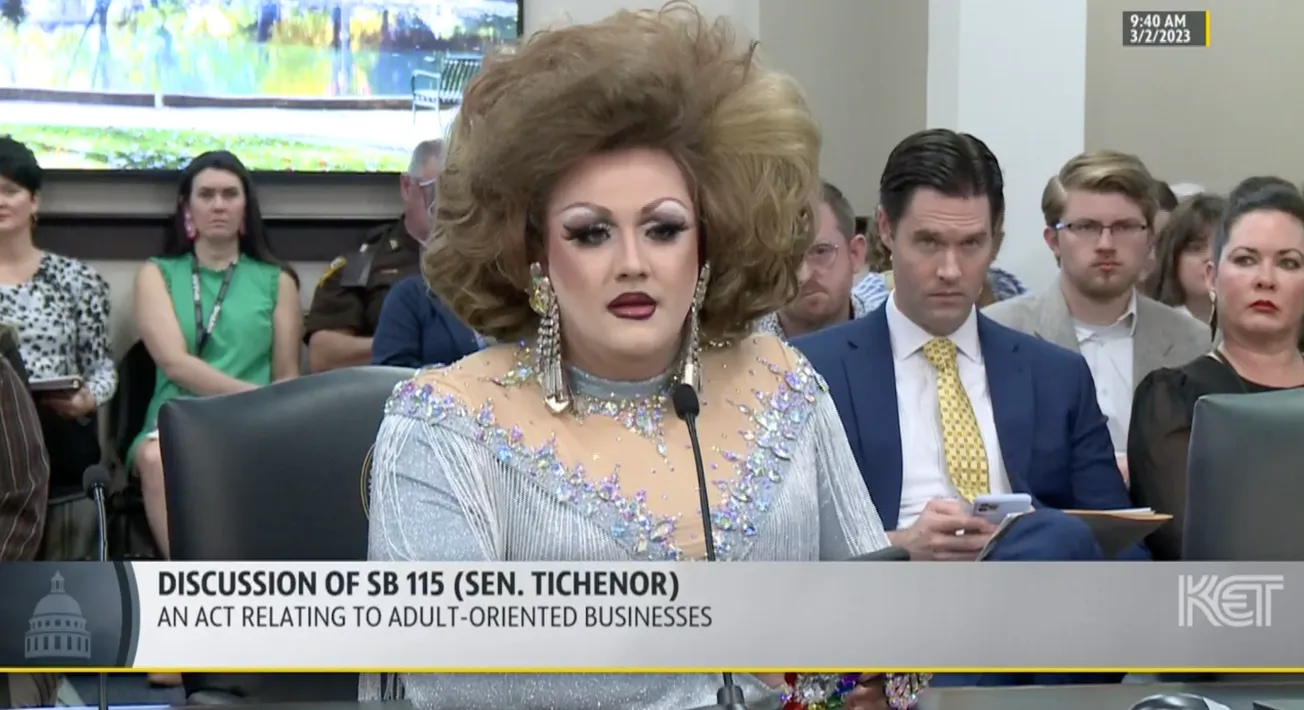A Senate committee on Thursday approved new restrictions on “adult-oriented businesses” that opponents describe as “this year’s anti-drag bill.”
Sen. Lindsey Tichenor (R-Smithfield) filed Senate Bill 147 in late January, saying it was “not intended to impede on any First Amendment rights of free speech, nor to impose limitations on reasonable access to the intended adult market.”
The bill mandates certain “adult-oriented” performances cannot be closer than 933 feet, about a city block, to facilities that cater to minors like schools and child care providers. Businesses that violate the rules could lose their ability to renew business or liquor licenses and could receive cease and desist letters.
Performance is “harmful to minors,” according to the bill, when it “taken as a whole, appeals to the prurient interest of minors.”
Tichenor filed similar legislation in 2023 that stalled after it passed in the Senate.
The latest version would:
- Clarify that an “adult-oriented” business is a business that “regularly hosts any performance involving sexual conduct.”
- Clarify that the restriction applies to “drag performance with explicitly sexual content.”
- Remove colleges and universities from the list of protected educational facilities.
Richard Nelson, the executive director of the Commonwealth Policy Center, told lawmakers “the bottom line with this is that this proposal seeks to promote the health, safety, and general welfare of the citizens of the Commonwealth of Kentucky.”
David Walls with The Family Foundation said the regulations proposed protect against the “numerous adverse effects of adult-oriented businesses.”
“It would simply provide reasonable protections for children from exposure and harm from adult businesses,” he said.
The opposition
Drag performer Poly Tics testified against the bill, saying the “resources, time, and money would be better spent ensuring every child in Kentucky has access to affordable health care, well funded education, and clean water and nutritional food.”
“I’m sure that every person in this room would agree that we have a specific need to address the health, safety, and well being of children,” Poly Tics said. “With that being said, targeting drag performances is by far one of the least impactful pieces of legislation that could be proposed to meet those needs.”
And, she said, the “numerous gray areas” in the bill could leave her and others open to legal and other attacks.
Andrew Schaftlein, who performs drag under the name May O’Nays, also spoke against the bill.
“I’m not … just the drag queen,” Schaftlein said. “I’m a parent. I have three-year-old twins. This bill has been written allegedly to protect children. Of all the threats of children, of which there are many, drag, I don’t believe is one of them.”
Michael Frazier with Ban Conversion Therapy Kentucky said there are some “constitutional vagueness” issues with the legislation.
The bill’s permission for local governments to create more stringent policies about these adult-oriented performances, Frazier said, places “undue burden upon the free speech rights of the drag queen performers.”
--30--
Written by Sarah Ladd. Cross-posted from the Kentucky Lantern.








